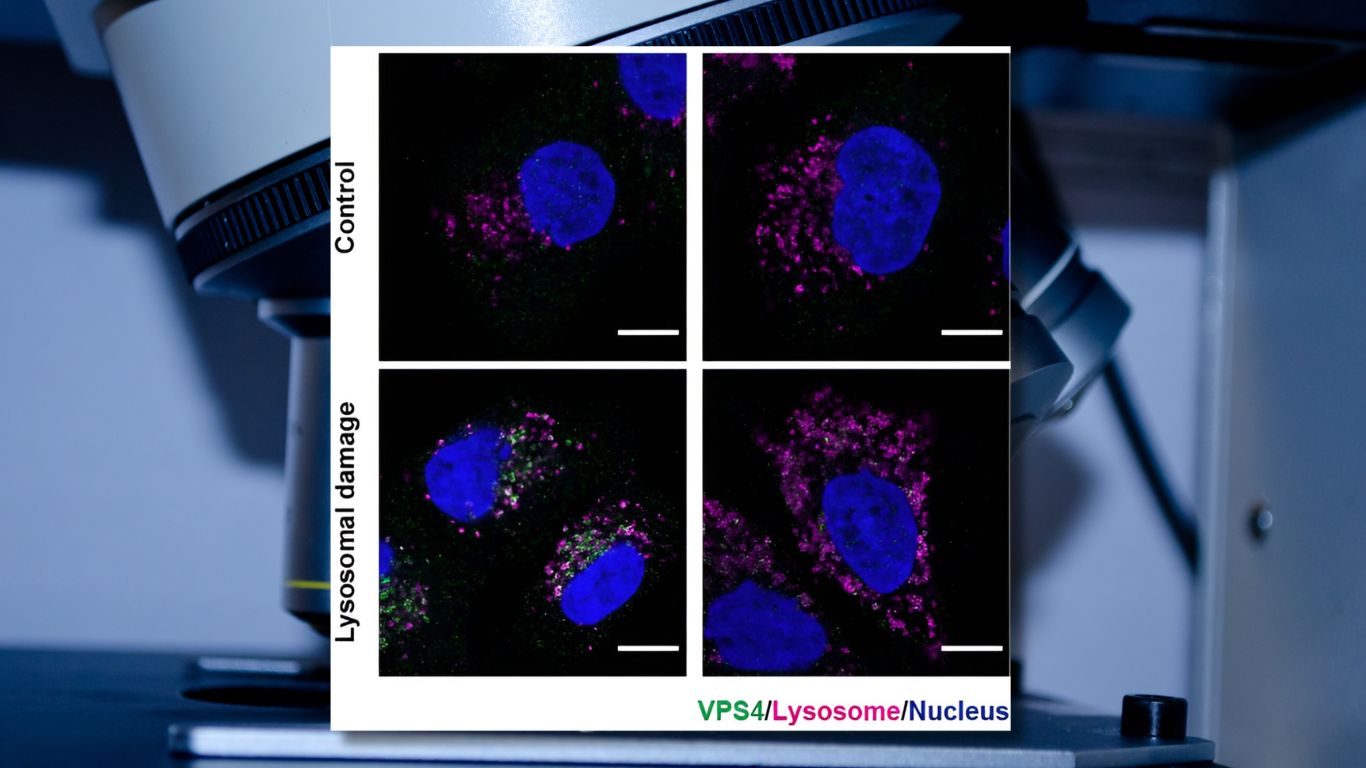Researchers from Osaka University and Nara Medical University have made a significant breakthrough in understanding a crucial repair process within cells, known as microautophagy. This cellular mechanism plays a key role in repairing damaged lysosomes, which are essential for maintaining cellular health and defying the aging process.
According to the recent study published in EMBO Reports, the research focused on STK38 and GABARAPs, two key players in the repair process. STK38 recruits VPS4 to damaged lysosomes, facilitating the disassembly of dysfunctional components, while GABARAPs initiate the assembly of crucial repair machinery by interacting with ALIX.
In order to test their role, researchers manipulated the levels of STK38 and GABARAPs in human cells and the model organism C. elegans. The results were significant, as lower levels accelerated cellular aging and led to shortened lifespans in the test subjects.
Understanding the implications of this cellular repair process has far-reaching potential, not only for academic purposes, but also for potential therapeutic interventions in age-related diseases. Unraveling the secrets of how cells combat aging could lead to pathways for prolonging healthy cellular function and overall lifespan.
These findings highlight the critical importance of microautophagy in maintaining cellular health through the repair of damaged lysosomes. STK38 and GABARAPs emerge as pivotal players in this intricate repair process, potentially becoming targets for future therapeutic interventions.
Finally, the study offers a glimpse into a future where age-related diseases might be tackled at their source – cellular degradation. By harnessing the knowledge of cellular repair mechanisms, there is the potential for enhancing human health and longevity.
In other news, the Centre for Novostics in Hong Kong is reportedly developing a low-cost version of the ‘Galleri test,’ a universal cancer blood test with high accuracy, while Chinese scientists have discovered that vitamin C may hold the key to anti-aging.
Overall, the recent breakthrough in understanding the role of microautophagy in repairing damaged lysosomes offers promising hope for potential therapeutic interventions in age-related diseases and a future where cellular degradation could be addressed to enhance human health and longevity.

I have over 10 years of experience in the cryptocurrency industry and I have been on the list of the top authors on LinkedIn for the past 5 years. I have a wealth of knowledge to share with my readers, and my goal is to help them navigate the ever-changing world of cryptocurrencies.




